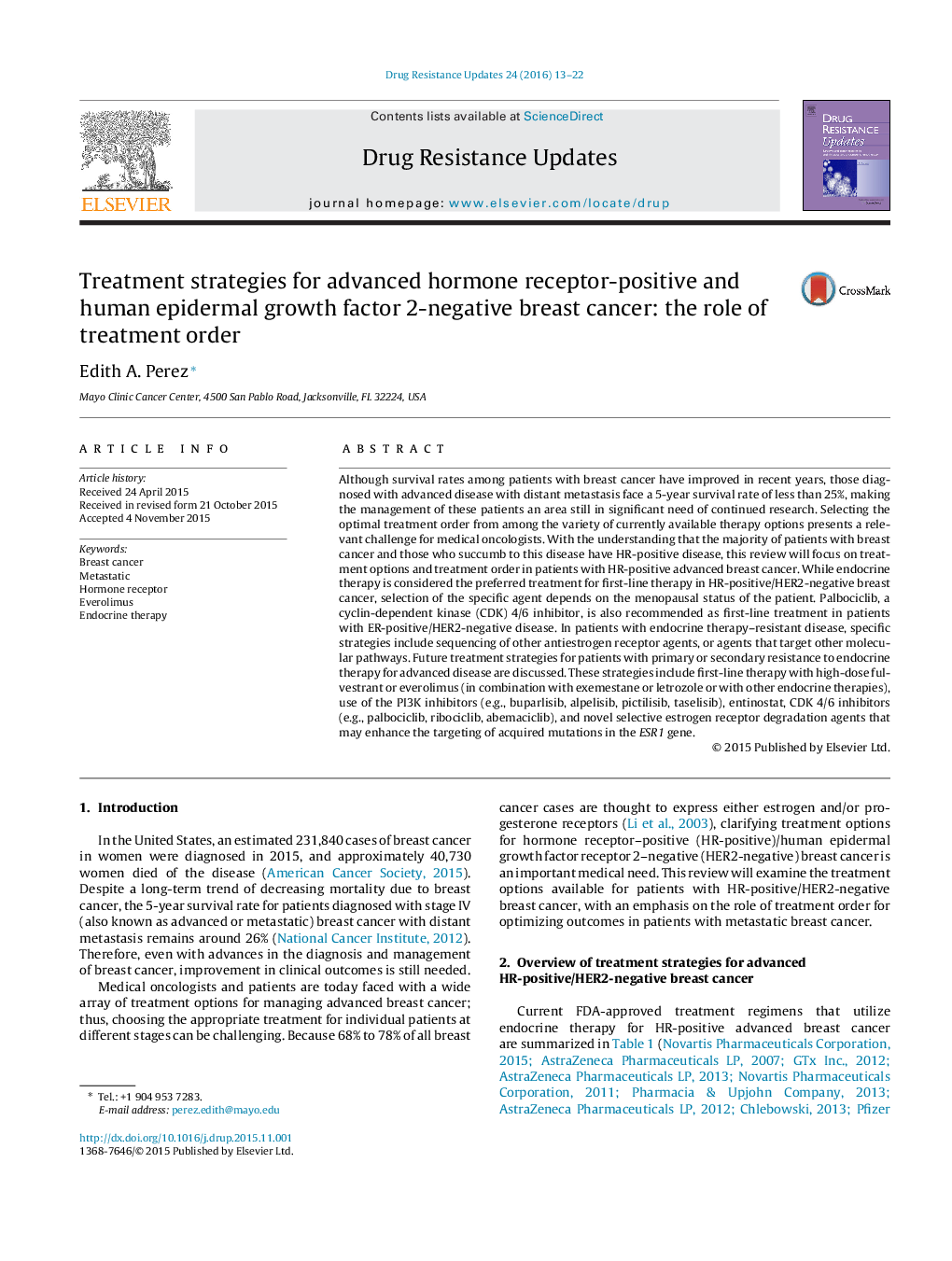| کد مقاله | کد نشریه | سال انتشار | مقاله انگلیسی | نسخه تمام متن |
|---|---|---|---|---|
| 2120305 | 1546839 | 2016 | 10 صفحه PDF | دانلود رایگان |
Although survival rates among patients with breast cancer have improved in recent years, those diagnosed with advanced disease with distant metastasis face a 5-year survival rate of less than 25%, making the management of these patients an area still in significant need of continued research. Selecting the optimal treatment order from among the variety of currently available therapy options presents a relevant challenge for medical oncologists. With the understanding that the majority of patients with breast cancer and those who succumb to this disease have HR-positive disease, this review will focus on treatment options and treatment order in patients with HR-positive advanced breast cancer. While endocrine therapy is considered the preferred treatment for first-line therapy in HR-positive/HER2-negative breast cancer, selection of the specific agent depends on the menopausal status of the patient. Palbociclib, a cyclin-dependent kinase (CDK) 4/6 inhibitor, is also recommended as first-line treatment in patients with ER-positive/HER2-negative disease. In patients with endocrine therapy–resistant disease, specific strategies include sequencing of other antiestrogen receptor agents, or agents that target other molecular pathways. Future treatment strategies for patients with primary or secondary resistance to endocrine therapy for advanced disease are discussed. These strategies include first-line therapy with high-dose fulvestrant or everolimus (in combination with exemestane or letrozole or with other endocrine therapies), use of the PI3K inhibitors (e.g., buparlisib, alpelisib, pictilisib, taselisib), entinostat, CDK 4/6 inhibitors (e.g., palbociclib, ribociclib, abemaciclib), and novel selective estrogen receptor degradation agents that may enhance the targeting of acquired mutations in the ESR1 gene.
Journal: Drug Resistance Updates - Volume 24, January 2016, Pages 13–22
